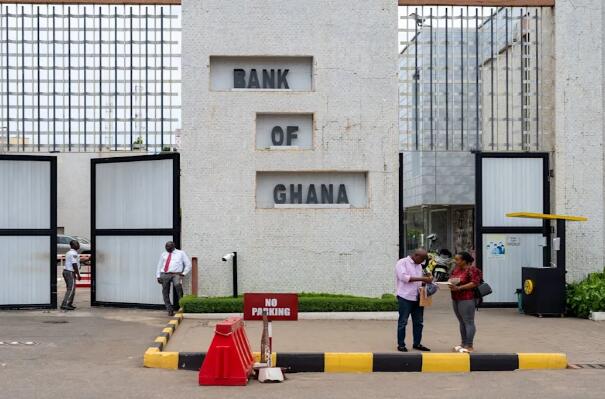In his first major policy decision, Ghana’s new central bank Governor Johnson Asiama unexpectedly raised the benchmark interest rate to 28% in an effort to combat persistent inflation, surprising economists and signaling a commitment to price stability.

Ghana’s new central bank Governor, Johnson Asiama, has signaled a strong commitment to fighting inflation by unexpectedly raising the benchmark interest rate. The monetary policy committee increased the policy rate to 28% from 27%, Asiama announced at a press briefing in Accra on Friday. The decision was a surprise to economists, with none of the five surveyed by Bloomberg anticipating an increase – the first since July 2023. This was Asiama’s first policy decision since replacing Ernest Addison as governor in February.
The rate hike “is meant to re-anchor the disinflation process,” Asiama stated. He added that the committee would “reassess the scope for a gradual easing in the policy stance” as inflation becomes firmly anchored and shows signs of decline in future readings.
Following the announcement, Ghana’s bonds maturing in 2035 eased 0.2% to 71.99 cents on the dollar in London trading, reaching a two-week low. Notes due in 2037 also declined, down 0.1% to 42.14 cents on the dollar.
A significant depreciation of the cedi against the dollar until November has kept Ghana’s inflation rate above 10% since September 2021, contributing to an average inflation rate of 23% over the past year. The central bank’s target range for inflation is 6% to 10%.
Cedi Stability
The governor expressed his expectation that the recent stability observed in the cedi will continue, supported by a build-up in reserves.
President John Mahama’s new government, which assumed office in January, aims to reduce inflation to 11.9% by the end of the year and forecasts economic growth of 4.4% in 2025.
Ghana is currently recovering from an economic crisis that led to a sovereign debt default in 2022, prompting the nation to seek a $3 billion bailout from the International Monetary Fund.
Finance Minister Cassiel Ato Forson revealed earlier this month that Ghana faces 150 billion cedis ($9.7 billion) of domestic debt service obligations and $8.7 billion of external debt over the next four years, describing them as “major humps.”
In addition to the rate hike, the central bank plans to introduce a new 273-day bill to manage market liquidity, enhance its monitoring of banks’ foreign exchange net open positions to ensure compliance, and review the current structure of the cash reserve ratio to support monetary policy.
Last month, Asiama indicated that he might introduce a single cash reserve ratio requirement, replacing the current tiered system that ranges from 15% for lenders with a loan-to-deposit ratio above 55% to 25% for banks with a ratio below 40%.